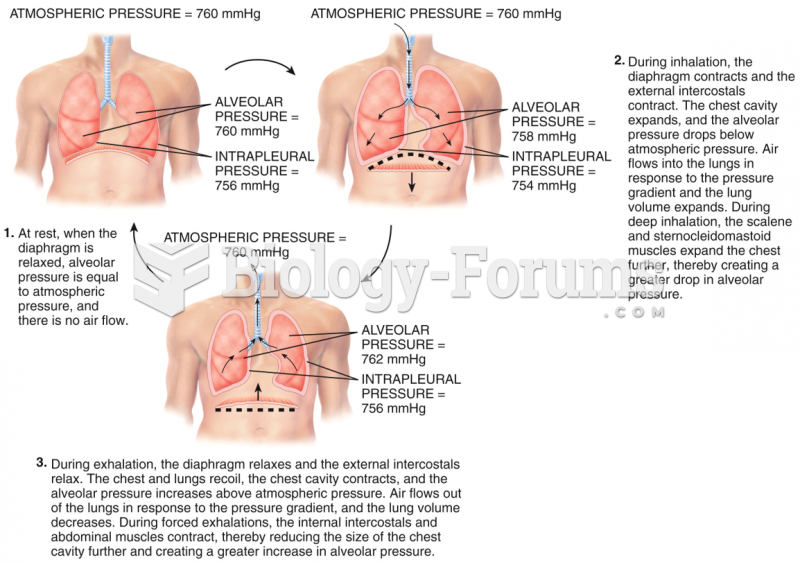|
|
|
The B-complex vitamins and vitamin C are not stored in the body and must be replaced each day.
Many supplement containers do not even contain what their labels say. There are many documented reports of products containing much less, or more, that what is listed on their labels. They may also contain undisclosed prescription drugs and even contaminants.
More than 150,000 Americans killed by cardiovascular disease are younger than the age of 65 years.
Although puberty usually occurs in the early teenage years, the world's youngest parents were two Chinese children who had their first baby when they were 8 and 9 years of age.
Certain chemicals, after ingestion, can be converted by the body into cyanide. Most of these chemicals have been removed from the market, but some old nail polish remover, solvents, and plastics manufacturing solutions can contain these substances.
 Empathy draws a more positive response from the patient because it is based on the willingness of th
Empathy draws a more positive response from the patient because it is based on the willingness of th
 Pressure testing the cooling system. A typical hand-operated pressure tester applies pressure equal ...
Pressure testing the cooling system. A typical hand-operated pressure tester applies pressure equal ...





